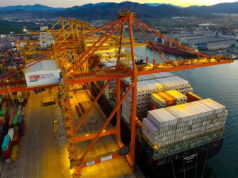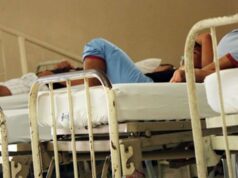February 4, 2018
Dear Editor:
Action for Economic Reforms (AER) has risen to the defense of the Duterte administration’s Tax Reform for Acceleration and Inclusion (TRAIN) law. It disparages TRAIN’s critics and their criticisms for being “unfounded, misinformed, oversimplified, or exaggerated,” to cite just the most recent Yellow Pad column of AER ‘Miseducating people is no different from spreading fake news’ (January 29, 2018) that we are compelled to respond to.
The recent column written by Ms. Karla Michelle Yu, research associate of AER, is a spirited defense of TRAIN and smack-down of an “IBON study that is riddled with loopholes” whose “data or the methods are wrong”. We would however like to correct Ms. Yu for her wrong data and facts.
Ms. Yu claims that IBON came out with a study on the inflationary effect of TRAIN on food and transportation and on the price effects of fuel and broadening the VAT base, then proceeds to say how “problematic” and “troublesome” the analysis of IBON is. But the thing is, IBON never came out with such a study which AER can easily fact-check.
While we are tempted to engage Ms. Yu on her supposed counterarguments, we have full confidence that the organizations who did make those claims have a keener sense of how things actually play out in the real world than mathematical simulations with self-serving assumptions.
IBON has always been transparent with the data and methodologies we use in analyzing TRAIN. They are in all the materials we release and have also been shared in Senate hearings, with Representatives of Congress, as well as directly with DOF officials in e-mail exchanges. We have reservations about the DOF’s data that we believe exaggerate TRAIN’s benefits and downplay costs. But we use the data anyway because, even as they stand, they establish TRAIN’s grossly regressive and anti-poor character.
AER can easily check with the DOF data they have that the net effect of TRAIN’s tax measures combined is to reduce the take-home pay of the poorest six deciles and to increase the take-home pay of the highest-income four deciles. TRAIN makes the tax system simpler but it also makes it more regressive and inequitable.
This is a generalization across 23 million Filipino families but it is robust even considering the points raised by Ms. Yu in her column. Yes, the top marginal income tax rate has been raised from 32% to 35% but it is misleading to cite this to give the impression that many wealthy Filipinos will be paying higher income taxes under TRAIN. In the real world, when the actual formula for computing income taxes is applied – which combines a lump sum with the tax rate only applied to the excess above the income tax bracket’s lower bound – it turns out that even someone earning up to P10 million a year will pay less income tax aside from lower estate and donor’s taxes. Only the richest 0.1% or so fraction of families will be liable for higher taxes under TRAIN (assuming they will pay correct taxes).
The excise fuel tax is a “bigger burden” for the rich than the poor only if one deals in absolutes that this is simply a matter of comparing how much the rich pay compared to the poor. But, in the real world, a few pesos taken from someone on the margins of subsistence is a much bigger burden than taking even thousands of pesos from someone much wealthier. This is why poor families welcome peso coins while rich families can spend millions of pesos on a grand debut just like that.
Lastly, the much-hyped cash transfers do off-set the price effects of TRAIN. This smokescreen is precisely why cash transfers take up the overwhelming bulk of the 30% of incremental revenues earmarked for social protection (leaving little for much else). They are only given in 2018, 2019 and 2020 though which are not coincidentally the very years when oil excise taxes keep rising and inflationary pressures keep growing. They are temporary relief while a bigger and bigger tax burden is put in place – and in 2021 the relief is gone but the burden which grew larger remains.
Ms. Yu has singled out IBON for analysis supposedly “riddled with loopholes” and ends with the insinuation that we “miseducate the public for the sake of propaganda”. We understand AER’s coming to the defense of TRAIN. Its long-standing support for the tax measure and close partnership with the DOF to give the tax measure civil society buy-in since at least 2016 is well-covered in media. Still, bringing less emotions into reacting and focusing more on analysis, based on facts, is probably more productive. We are sure that AER has all the relevant facts at hand and we encourage Ms. Yu and her colleagues to look at these more rigorously from the perspective of millions of poor Filipinos.
(Signed)
Sonny Africa
IBON Executive Director



